So, you’re feeling pain in your back or some other region of your body but you’re not sure if it’s a pinched nerve vs. a pulled muscle? The two might be confusing if you’re unfamiliar with the symptoms of each. However, there are some notable differences between the two.
If you’re hoping to learn more about the difference between a pinched nerve vs. a pulled muscle, keep reading the information below.
What is a pinched nerve vs. a pulled muscle?
- Pinched nerve — A pinched nerve occurs when a nerve in the body becomes compressed or put under pressure by something around the nerve. Some examples of tissue that could place pressure on a nerve include bone, cartilage, muscles and even tendons.
- Pulled muscle — A pulled muscle occurs when a muscle or tendon becomes overstretched or torn. They’re usually caused by overstraining the body during physical activity, like during a sports game or when lifting something heavy.
What are the symptoms of a pinched nerve vs. a pulled muscle?
- Pinched nerve — The symptoms of a pinched nerve are as follows:
- Numbness or tingling.
- Sharp, stabbing pain.
- Weakness in the area.
- Aching or radiating pain.
- Pulled muscle — The symptoms of a pulled muscle are listed out below:
- Pain in the area of the strain.
- Reduced mobility.
- Inflammation and swelling.
- Bruising.
What are the causes of a pinched nerve vs. a pulled muscle?
- Pinched nerve — A pinched nerve typically occurs when a nerve becomes compressed by tissue in the body. The most common types of tissue that cause compression are tendons, cartilage, muscle or bone. An example of a scenario that could cause a pinched nerve is when a disc in the spinal column herniates and pinches a nerve, causing numbness, tingling and pain in the body. The symptoms of a pinched nerve aren’t always felt in the area where the compression is occurring, but rather can be felt radiating away from it instead. Some specific conditions that can lead tissue to push on a nerve include repetitive motion and arthritis.
- Pulled muscle — Pulled muscles often occur as a result of repetitive movements and injury, like lifting something heavy. Certain physical activities like contact sports can put a person at an increased risk of pulling a muscle.
What treatments work best for pinched nerves vs. pulled muscles?
- Pinched nerve — Some of the most common treatments for pinched nerves include resting and taking anti-inflammatory pain medication. You will need to temporarily stop doing the activities or movements that may be aggravating your pinched nerve. In addition to these treatments, it can be beneficial to seek treatment from a physical therapist. Physical therapists can help strengthen the muscles in the areas surrounding the nerve, reduce some of the inflammation around the nerve, and also relieve some of the pressure that may be causing the pinched nerve. They can also help you modify the movements you perform that may be causing the pinched nerve to flare up.
- Pulled muscle — Some typical treatments for pulled muscles are also rest and anti-inflammatory medications. Some other treatment suggestions include icing the affected area and keeping it elevated. It may also help to keep the pulled muscle compressed, with a tight bandage or wrap. Physical therapy is also likely to be beneficial for those who have experienced a pulled muscle. Physical therapists are experts in helping people build muscle strength to prevent this injury from recurring and to support the area of injury. They also can help decrease any inflammation that is affecting the area. If your occupation is one where you’re frequently performing sharp movements or dealing with heavy objects, like moving boxes or heavy parts, you’re also more at risk.
SSOR can provide you with the guidance you need whether you have a pinched nerve or a pulled muscle
Here at Specialists in Sports and Orthopedic Rehabilitation, we strive to provide a level of care to our clients that they can’t find elsewhere. We supply care with a hands-on approach. Each of our treatment plans is unique to each individual, and we incorporate compassion to sweeten your care at each one of our multiple clinic locations. If you’re looking for a professional to help you address a pinched nerve or a pulled muscle, SSOR is the right place to visit.
We value patient education, evidence-based outcomes, and maintaining an atmosphere of empathy. Our team consists of experienced, licensed physical therapists who aim to help improve your physical health while helping you reach your wellness goals. Whether you’re dealing with a pinched nerve or a pulled muscle, our SSOR team is prepared to help you reduce pain and inflammation while improving your range of motion and strength. You’ll be on the path toward recovery in no time.
Contact us today for more information or to schedule an initial appointment.

